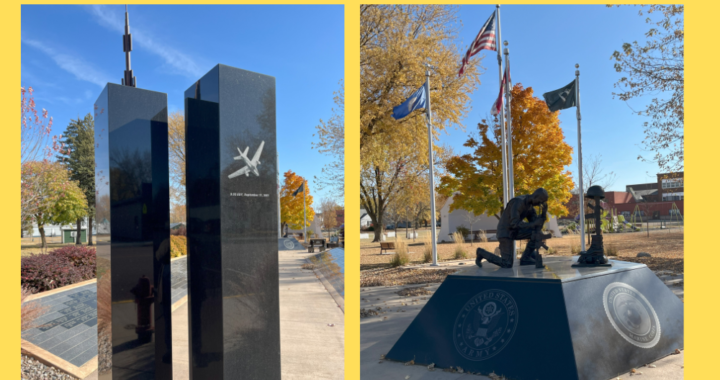How To Find a Qualified Hypnotist

During that interesting time when the conscious mind is quiet and not guarding the subconscious, suggestions from the outside world can enter and become part of the network of automatic thoughts that run our day-to-day lives. These can be neutral, positive or negative and very hard to get rid of once established. However, this state can be used to improve life if used intentionally so only useful suggestions are presented to the mind during this time using formal hypnosis techniques.
These specialist hypnotic protocols and techniques can help with stress, anxiety, panic, phobias, unwanted habits, smoking, emotional-eating, insomnia, lack of confidence, fear of examinations, public speaking, athletic performance, chronic pain, irritable bowel syndrome (IBS) child-birth and more.
Listening to commercial audios or even watching YouTube videos might be helpful but much less so than a personalized program to help you deal with your specific issue or problems to provide an experience as individual as you are. Especially if this is the first time you are being intentionally hypnotized it is better to have an expert guide beside you.
So if you are considering hypnosis, what is your next step and are you looking for a hypnotist, a consulting hypnotist, a clinical hypnotist or a hypnotherapist?
Check out Denise Billen-Mejia’s Commentary Series Here
What’s the difference? Very little, the title used depends on where in the world the individual practitioner is based, which certifying organization they use, and sometimes personal preference or additional qualifications such as social worker, psychologist, dentist, doctor etc. What you need to know is whether they have trained in hypnosis to the degree required by the major certifying organizations, what experience they have and, most important, whether you are comfortable with them.
Even if you don’t think of your problem as a medical issue, the first place to turn is your trusted medical advisor, your GP or specialist. There are two reasons for this, the most important being there are a few conditions which would make hypnosis unwise, some forms of epilepsy and some thought disorders in particular. The second reason is that it is possible they already have a list of qualified people they refer to and it will save you a lot of time.
If your doctor cannot refer you , an internet search will give you a long list of people whose qualifications you can see and check. These days many can offer online services so there are fewer time constraints for those who cannot take time off work. Thanks to the increased use of online services during Covid anecdotal evidence suggests online is in fact as good as or even better than in-person as it allows the client to relax in familiar surroundings for a longer period of time before going about their regular day, also saving time and money on travel and parking.
In the United Kingdom, there is a National Registry, National Council for Hypnotherapy. Unfortunately, there is no such registry in the USA, however, the major organizations, such as the National Guild of Hypnotists or the International Medical and Dental Hypnotherapy Association have directories of qualified hypnotists. These listings will also show whether the hypnotist is licensed in any state requiring licensure, which are, at the time of writing, WA & CT.
In order to be certified, applicants must have graduated from an approved school of hypnosis, have at least 100 hours of clinical experience whilst supervised by a senior hypnotist, and follow a code of ethics. Continuing Education hours each year are required to maintain certification. Where the hypnotist went to school and how long they have been in practice is important, but less so than how YOU, the client, feel when talking to them and that applies to the hypnotist too. There must be good rapport between hypnotist and client and the client must fully trust the hypnotist in order to get the wanted results. The hypnotist must also be comfortable working with the problem the client is presenting with. I don’t personally know any hypnotist who does not insist on an initial free consultation so both the hypnotist and client can be sure that they are a good fit. Good rapport will lead to a better experience with faster and more lasting results and an ethical hypnotist will refer you to a colleague if they feel that would lead to better results.
Of course, cost is a consideration for most people and it is unusual for health insurance to pay for hypnosis although plans vary and it would be worth checking with your company. Those with HSA or FSA accounts may find they can be reimbursed if they have a prescription from their doctor but it is not guaranteed and advisable to consult a tax professional. Some hypnotists are able to offer sliding scale and payment plans for longer programs.
If you are ready to make a positive change in your life consider hypnosis. I am happy to answer any further questions you may have, contact me through my website.
Denise Billen-Mejia MD, Consulting Hypnotist and Coach worked for two decades as a clinician in Pediatrics and Emergency Medicine and now, retired from medicine, she actively seeks opportunities to educate physicians and the public about hypnosis.
She is a fellow of the Royal Society of Medicine (section on Hypnosis and Psychosomatic Medicine), and a member of the National Guild of Hypnotists.
For more information visit www.AAhypnosis.com



 The Science Behind Visualizing Exercise
The Science Behind Visualizing Exercise  End Your Leadership Year With a Bang
End Your Leadership Year With a Bang  Supporting Emotional Health Through the Amygdala
Supporting Emotional Health Through the Amygdala  Sleeping Your Way to the Top (Performance Level)
Sleeping Your Way to the Top (Performance Level)  Brain Food: Nourishing Your Mind for Optimal Performance
Brain Food: Nourishing Your Mind for Optimal Performance  Spread This News About Benefits for Veterans and Caregivers
Spread This News About Benefits for Veterans and Caregivers  Robbing Jesus To Pay for Politics
Robbing Jesus To Pay for Politics